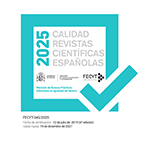Writings from a Sienese Renaissance prisoner. Antonio Petrucci’s fall and his zibaldone (1461-1465)
Abstract
Urbino. November 1464. Antonio Petrucci, a preeminent Senese politician and condottiero, is still imprisoned, following his defeat at the hands of papal troops on 30 October 1461. During his captivity, Petrucci composed a Zibaldone (a commonplace book), in which he mainly copied lyrics by Latin classics and Italian poets and humanists. Petrucci’s autograph also contains a complaint against Fortune dated 10 November 1464, which is one of the last texts of the manuscript. Petrucci was certainly
not the first medieval author to reflect on human fate and the role of Fortune. On the contrary, the image of the wheel of Fortune is probably among the most iconic of the Middle Ages. Nevertheless, Petrucci’s complaint is not simply a general reflection on the role of Fortune. The lamentation is chiefly the way Petrucci decided to portray his own personal fall, accusing the “very cruel Fortune” of depriving him of his “illustrious and gracious homeland”, Siena. It would be superficial to reduce the Senese’s complaint to a simple description of his misadventures, and the same is true for every document written by someone who suffered a failure. Petrucci’s case raises questions about the sources available to historians to study the history of downward mobility.
Downloads
Article download
License
In order to support the global exchange of knowledge, the journal En la España Medieval is allowing unrestricted access to its content as from its publication in this electronic edition, and as such it is an open-access journal. The originals published in this journal are the property of the Complutense University of Madrid and any reproduction thereof in full or in part must cite the source. All content is distributed under a Creative Commons Attribution 4.0 use and distribution licence (CC BY 4.0). This circumstance must be expressly stated in these terms where necessary. You can view the summary and the complete legal text of the licence.
En la España Medieval is an open access journal that does not charge authors for article processing (submission, review or editing) or publication.












